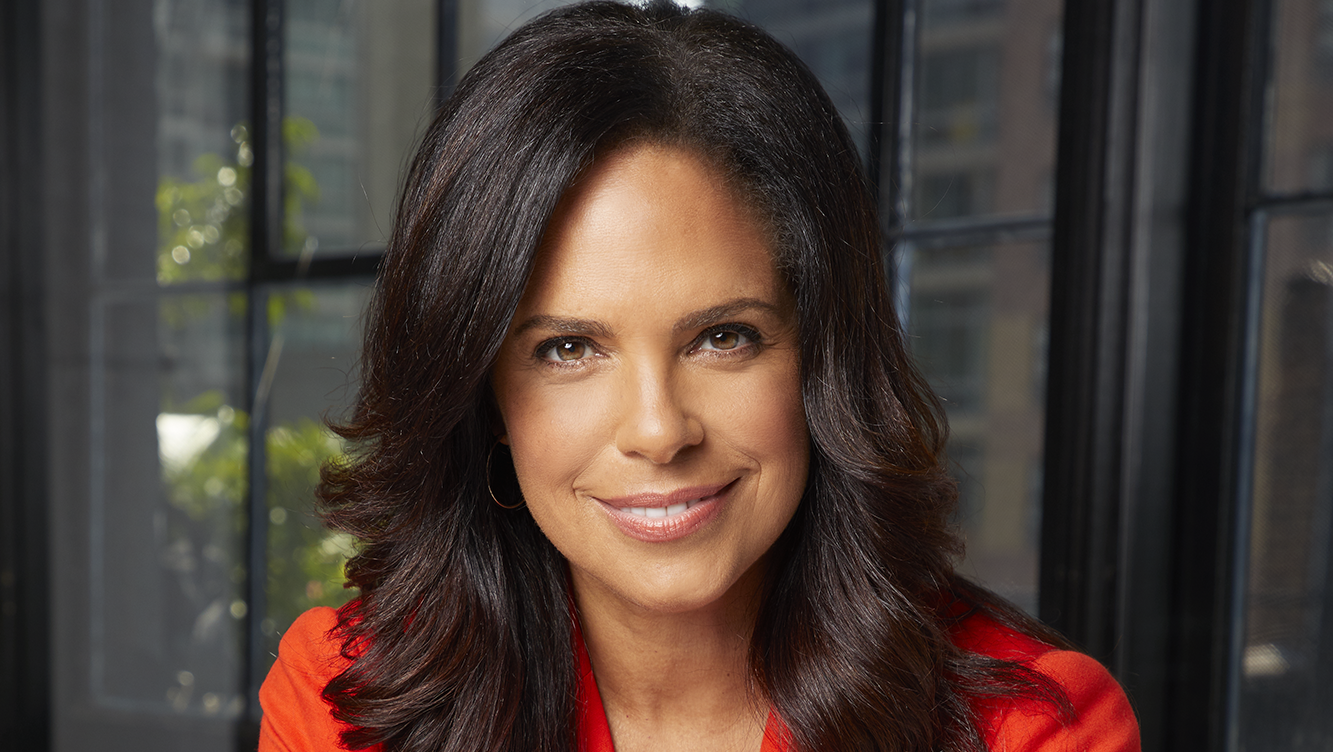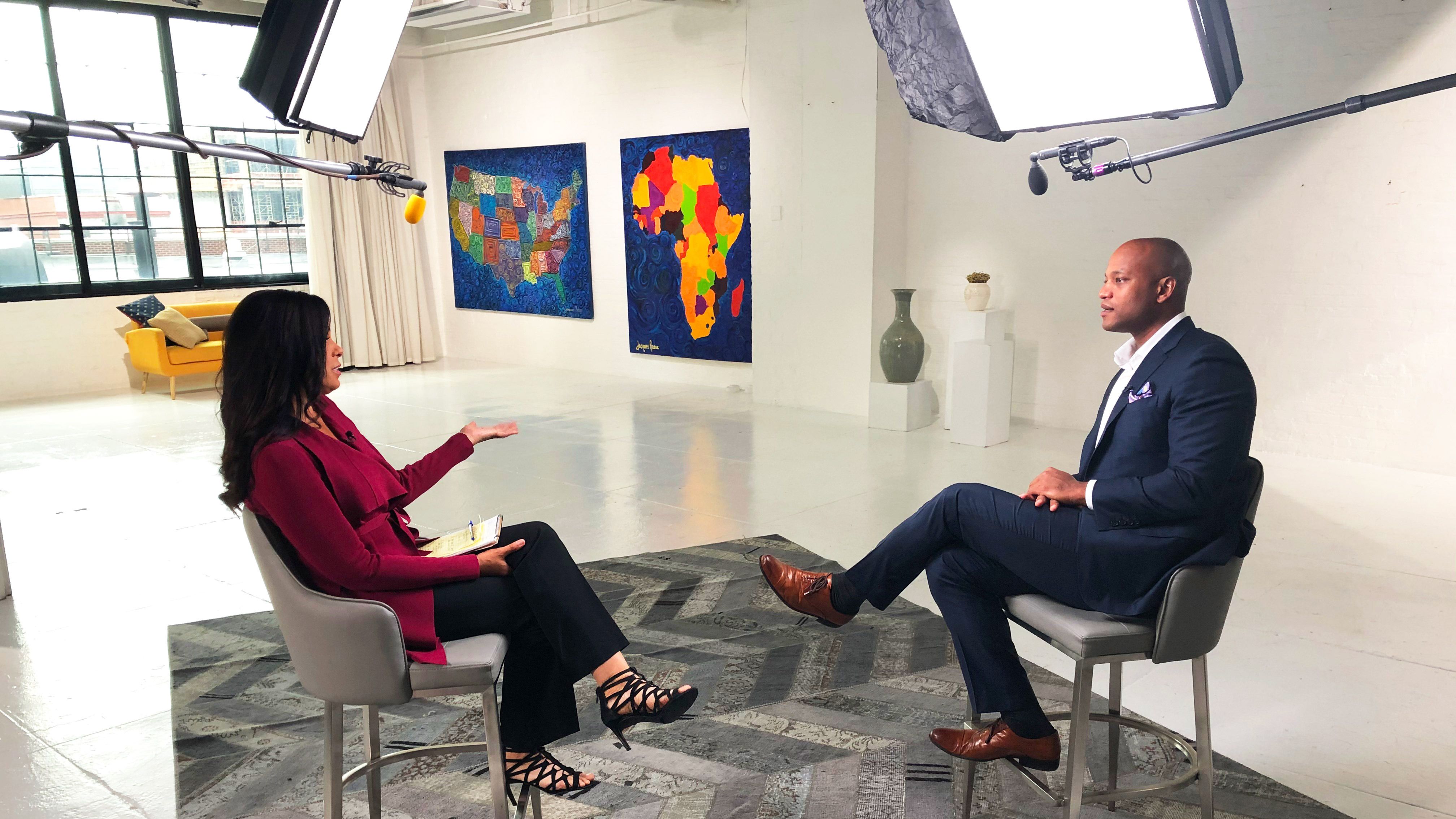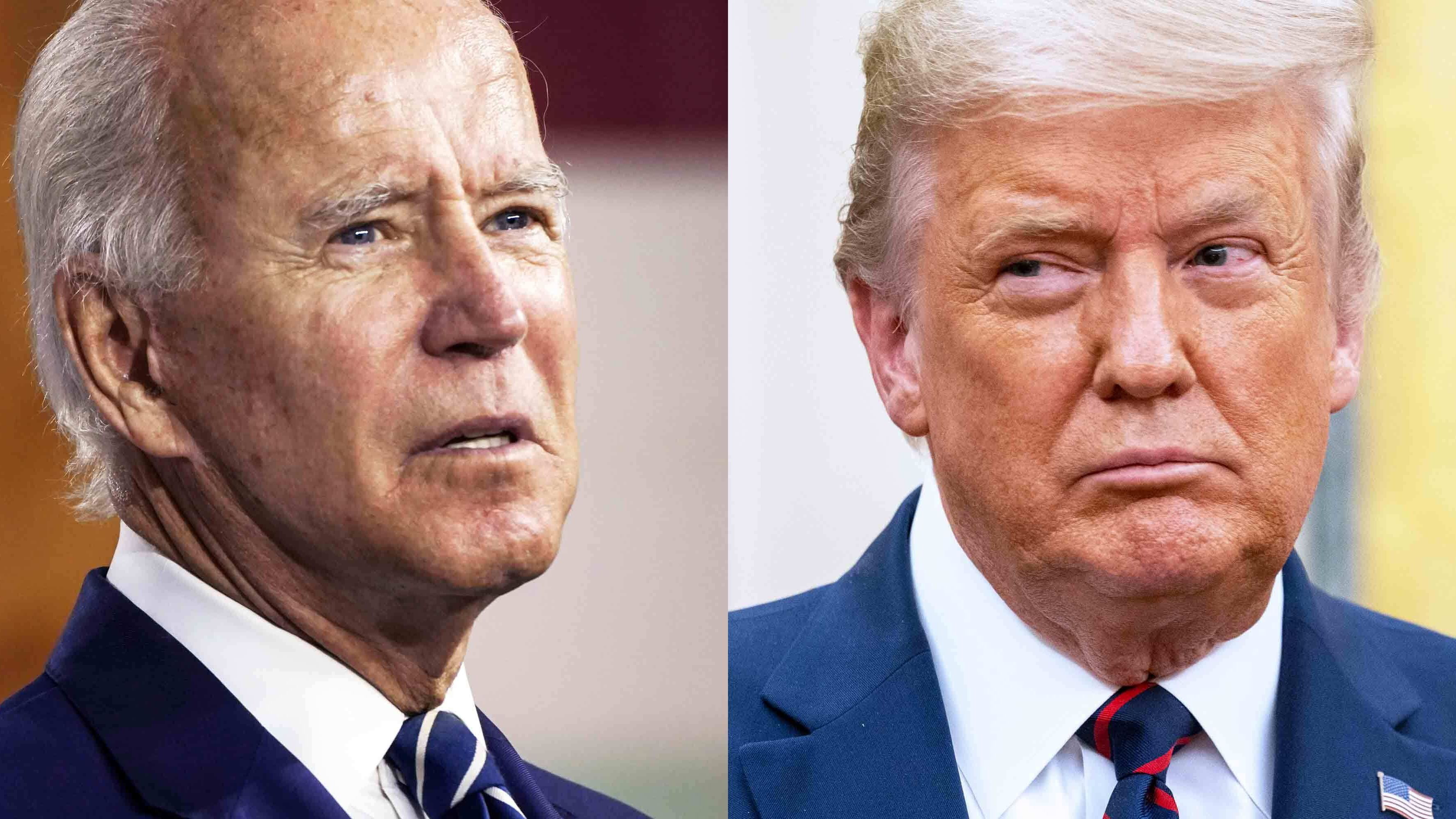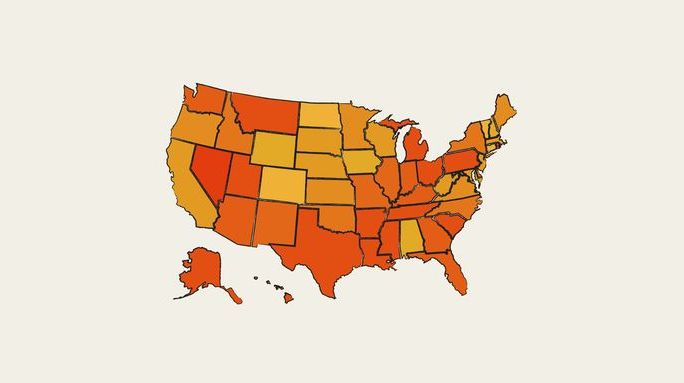Soledad O'Brien Isn't Here for the Soundbites
In her new 'Matter of Fact' Listening Tour, O'Brien is having the long, tough conversations about race and equity.


This summer, as the United States experienced a racial reckoning following the murders of George Floyd, Breonna Taylor, Ahmaud Arbery, Tony McDade, and countless other Black people, Americans slowly began to normalize having conversations about racism and injustice. Initiating those conversations has proven difficult for many, but ensuring they continue amidst a chaotic news cycle—during an election year and a pandemic, no less—has been equally challenging. Soledad O'Brien, award-winning journalist and host of Matter of Fact with Soledad O'Brien, plans to keep these long-overdue discussions front and center with the launch of her upcoming Matter of Fact Listening Tour.
A special project of O'Brien's Matter of Fact show, the listening tour is a series of one-hour virtual forums moderated by O'Brien that will center on conversations about race, privilege, and social justice. The first episode, "The Hard Truth About Bias: Images and Reality," is a deep dive into bias, and will feature an array of marquee guests, including journalist Jemele Hill and Black Lives Matter co-founder Alicia Garza. "It's been really fascinating," O'Brien tells Marie Claire about the tour, which premieres via livestream on October 8. "For me, as a reporter, I've been covering these topics for decades, but being able to do a special around it is just an amazing opportunity. It's not a four-minute segment where we're going to fill you in on bias. We really get a lot of time to walk through some of the complications [of] a very complex and nuanced topic."
While future topics have not been announced yet, the listening tour is expected to have quarterly episodes in 2021 that will focus on some of the most pressing issues our society faces today, with race and justice at the core. Here, Marie Claire caught up with O'Brien to discuss what viewers can expect from the listening tour, that presidential debate, and how the media can do better at calling out racism for what it is.
Marie Claire: For fans of Matter of Fact, how does the listening tour differ from the show's regular programming?
Soledad O'Brien: They're actually very similar. On Matter of Fact, we look at policy and how policy impacts individuals. We don't love doing political debates. That's not really what it's about. It's much more about how politics impacts actual people. I always say I'd rather put a real person on TV than a politician. We go somewhere and talk to the people about the issues that matter in their community. By looking at those stories, we illuminate something for the broader audience. For this listening tour, it's just taking a piece of what we nurtured and grew on Matter of Fact, and turning it into a full-fledged conversation. The topic requires that. I don't think you can do a credible job in less than an hour.
MC: Bias is the first topic of the tour. What are some of the lessons you hope people will take away from the episode?
SO: People don't understand what bias is, and how bias shapes everything that we do. People like to think about racism and bigotry as an individual who acted in a certain way. When we start talking about systems [in criminal justice or policing or housing], it gets a little more complicated. It doesn't become about whether this person was bad or good; it's about how these systems have failed people, and how these systems have been built on bias and stereotypes. We have to start from the beginning.
Get exclusive access to fashion and beauty trends, hot-off-the-press celebrity news, and more.

Soledad O’Brien (left) and Wes Moore (right) behind the scenes of the Matter of Fact Listening Tour. Moore, the CEO of the Robin Hood Foundation, appears as a guest on the first episode.
MC: Speaking of how bias plays a role in situations, you weren't shy on Twitter about Chris Wallace's performance as the presidential debate moderator the other night.
SO: Listen, I am the biggest fan of Chris Wallace whenever he does interviews, but what a bad job. And people who were like, "Well, what could Chris have done?" I'll tell you what he could've done. When you're a moderator, you shut it down. If you know in the first five minutes that this is going to be a sh*t show, then you have to be like, "Okay. You know what, guys? Let's pull it all together, and let me restate the rules." It just started off badly and then went downhill.
What was an absolute crime and journalistic malpractice was: How do you have the president of the United States, who you bring to the moment of asking him to condemn white supremacy who can't do it, and you don't bother to ask a follow-up [question]? That particular one was a failure of the moderator. You need to have conversations about race and white supremacy with people who know what they're talking about. I promise you a Black moderator would not have let that go. A brown moderator would not have let that go. If you remember, in the debate, there was a moment, right? It kind of got quiet, and you could feel it. "So sir, why don't you denounce...?" [Trump]'s like, "Chris, Chris, what do you want me to say? What do you want me to say?" And [Trump] starts, and he can't get through it. And Chris cannot bring himself to ask a follow-up. So that's just a moderator fail. Period. Full stop.
Chris Wallace failing at his job as a moderator. Just a mess. And we’re 13 mins in.September 30, 2020
Hellllo Chris Wallace??? Looking for a moderator here. Jesus Christ what a fricken mess.September 30, 2020
MC: Naturally, people are focused on the election right now. How will the Matter of Fact Listening Tour contribute to the cultural conversation after November?
SO: We'll have this conversation, and then we have at least three more over the course of the year. We don't know exactly what the topics will be. One thing I've seen in TV news, and maybe particularly cable news...there's a lot of coverage of the froth, but not a lot of coverage of, for example, what does qualified immunity mean? Let's sit in this for 20 minutes and really explain to you who pays when a police department is fined in a civil suit. How does that work? I think there's a great opportunity here to educate people about how stuff works in their backyard. We'll be doing a deeper dive into all of these topics.
MC: One of the things that stood out to me during the debate is when Chris Wallace mentioned defunding the police. I thought it would have been the perfect opportunity for Joe Biden to define that term because a lot of people don't understand that it's really about reallocating funds. Explaining topics like that, and qualified immunity, would be very helpful for Americans.
SO: Right. A lot of the debate was people just shouting things at each other and not a Well, wait, what does "defund the police" mean to Joe Biden? What does it mean to Chris Wallace? What does it mean to Donald Trump? As opposed to people throwing these slogans and phrases around, let's define the terms for everybody. We're supposed to be educating the public about something really important, but instead we got a TV show. A really crazy one at that.
MC: I'm curious to know how your work style has adapted during the pandemic. Have you made any key changes or noticed any shifts within yourself?
SO: My house is set up with a camera and TV lights because we just end up popping in to do live shots all the time. So that's been kind of crazy, much to my husband's chagrin. He's like, "I need this stuff out of my bedroom." Literally, the giant TV lights, I have them. Before my boys started school, they were helping me a lot with shoots. They would do a FaceTime with our director, and he'd say, "No, no, no. Raise the light this way. Nope, do that. Nope, shoot this way." It was crazy. I think it talked them out of ever working in television. Then I moved back into the studio when school started for them again. I think it's just trying to make sure you don't work all the time, which is really easy to do, especially for someone like me, who's always on social media and always getting ideas for conversations on social media.
Part of journalism, part of what we do, is holding up some ugly truths for people to see. I don't want to spend my career sugarcoating stuff and making people feel comfortable.
MC: As a woman of color, how have you been able to navigate covering heavy topics like racism while attempting to keep your peace?
SO: I'm not sure... well, to be honest. I'm pissed off. I'm mad. I'm sad. I'm frustrated like everybody, right? It just feels bad. I'm sick of it, and something needs to be done. I try to keep my sanity. I have this debate frequently: If there's a video or something, I often will ask myself, Do I want to retweet it? And for what I do, sometimes I feel like the answer is yes, as awful as it might be. I think it's important. If I hadn't watched George Floyd being killed, I don't know that I'd be able to spread that message to people as effectively. Maybe that's the wrong way to think about it. But then, there are some days that I am like, "Nope, can't look at this. Nope, can't watch it." I'm always conflicted because I'll send something out, and people are like, "Oh, my God. This is traumatizing. Don't send it." Part of journalism, part of what we do, is holding up some ugly truths for people to see. I don't want to spend my career sugarcoating stuff and making people feel comfortable: "Well, it was really bad, but I'm not going to let you see it, so that you're not upset by it." I want you to get upset, and I want you to get mad. And I want you to say, "We are better than this, and we need to do better than this."
MC: Overall, how can the media do better in terms of covering racism and identity?
SO: Step one: cover racism and identity. They don't. Here's how it goes: "On this Black History Month, we take a look at, But Who Really Was Ida B. Wells? Let's take a look." That kind of thing, right? It's always this historical, sepia-colored look back, as opposed to having blunt conversations about racism and race issues today as they currently live out. In housing, why do some people have houses more valuable than others? When certain communities become more valuable, why does everybody get gentrified out? What was redlining like in your town? How did it happen? How did it work? And what does it do, not just for people 30 years ago, but for the descendants of those people? Everybody likes to act as if racism and slavery was 5 million years ago and that racism is a very blurry topic that has no relevance today. It's just wrong. There's so much content being created, so you have to figure out a way to have those conversations and get them into the hands of people who are interested.
This interview has been edited and condensed for clarity.
The first episode of the Matter of Fact Listening Tour premieres on Thursday, October 8 at 7 p.m. EST. It will be available to watch via livestream on MatterofFact.tv and across dozens of Hearst websites, like ours, here.
RELATED STORIES


Rachel Epstein is a writer, editor, and content strategist based in New York City. Most recently, she was the Managing Editor at Coveteur, where she oversaw the site’s day-to-day editorial operations. Previously, she was an editor at Marie Claire, where she wrote and edited culture, politics, and lifestyle stories ranging from op-eds to profiles to ambitious packages. She also launched and managed the site’s virtual book club, #ReadWithMC. Offline, she’s likely watching a Heat game or finding a new coffee shop.
